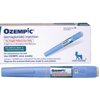Fritextsökning
Artiklar per år
Innehållstyper
-

Who pays for Rebecca Doe – and all of us?
Anna Törner on how easily we get used to the idea that healthcare is free - when it really is about how and who pays for it
-

Security flaw in Swedish breast cancer screening software – woman passed away
A lack of safeguard in Sectra's software led to a woman with breast cancer receiving an incorrect diagnosis. She later passed away. The software is used in 20 out of 21 regions in Sweden. It is also used in neighbouring Nordic countries. “Extremely serious,” says the Sectra CEO to Medtech Magazine.
-

Health politician Lina Nordquist: ”I find it hard to be idle”
She is the pharmacist and researcher who grew tired of the breakthroughs that never materialised and knowledge that never seemed to reach patients, so she decided to make a change from within. Life Science Sweden meets Lina Nordquist, Member of Parliament for the Liberals and their spokesperson on healthcare policy, to have a conversation about reality, politics, and the need for writing.
-

Ett litet djur med stor betydelse – Zebrafisken
Från den mytomspunna Gangesfloden till det mindre heliga, men avsevärt renare vattnet i KI:s akvarier i Solna. Den lilla zebrafisken har gjort en omedveten karriär – som ett allt viktigare försöksdjur i den medicinska forskningens tjänst.
-

Ljust fjärde kvartal för flera läkemedelsjättar
Av 22 globala läkemedelsjättar var det endast en som redovisade en minskad försäljning i fjärde kvartalet jämfört med föregående år. Det följer ett nytt mönster.
-

Milstolpe nådd för Leqembi – Bioarctic kan casha in
Försäljningen av alzheimerläkemedlet Leqembi har nått sin första milstolpe, och därmed kan svenska Bioarctic på allvar börja skörda frukterna av sitt utvecklingsarbete.
-

Norway rejects national life science strategy – sees no need
The Norwegian Arbeiderpartiet rejects a proposal that Norway should develop its own life science strategy.
-

Nästa generations fetmaläkemedel ska sätta ny standard
Inom ett par år kommer nästa generations fetmaläkemedel sannolikt vara ute på marknaden. Försök att råda bot på biverkningar som minskad muskelmassa är en förhoppning, men flera kandidater siktar mot att sätta en helt ny standard för vad behandlingen kan åstadkomma.
-

Anna Törner: Vem betalar för Rebecca Doe – och alla oss andra?
Det lätt att vänja sig vid tanken att vård och läkemedel är gratis, när det egentligen handlar om hur och vem som betalar. Det skriver Anna Törner i en krönika.
-

Life science trends 2025 – Neurology
New Alzheimer's drugs are beginning to be used in Sweden, more deals in the neuro sector are expected, and tools for deliver active substances across the blood-brain barrier are being developed. In addition, a new type of drug for MS is making its debut. This part of trend insights on life science 2025 is about neurology.
-

FDA utökar användningsområdet för Ozempic
FDA har godkänt Ozempic som den första GLP-1-analogen att minska risken för försämrad njursjukdom.
-

Large study: The benefits and risks of obesity medications
Medications such as Ozempic can reduce the risk of a range of different diseases and health conditions but also increase the risk of others. This is according to a large American study where the connections between GLP-1 receptor agonists and the risk of a variety of health outcomes have been examined.
-

He takes over the chairmanship of Karolinska Development
Ben Toogood is appointed as the new chairman of Karolinska Developments.
-

J&J:s nässpray mot depression godkänns som monoterapi i USA
Johnson & Johnsons nässpray Spravato tillåts nu att användas som fristående behandling vid svår depression.
-

Life science trends 2025 – Part 1 obesity drugs
More obesity drugs are being launched this year following Novo Nordisk and Eli Lilly's previous successes with GLP-1 drugs. But the next big breakthrough in obesity has a different mechanism of action, writes Samuel Lagercrantz in the first article in a series of trend insights for 2025. Today: obesity.
-

New cell therapy raises hope for curing type 1 diabetes – "Never succeeded before"
For the first time, a patient with type 1 diabetes has undergone an islet transplantation using genetically modified insulin-producing cells that do not require immunosuppressive drugs. "A major immunological breakthrough," says Professor Per-Ola Carlsson, who leads the clinical study, to Life Science Sweden.
-

Dubbla bakslag för ALS-projekt – ”Inte vad vi hoppats på”
Förhoppningarna om att utveckla en ny typ av behandling mot nervsjukdomen ALS har fått sig en törn när två läkemedelskandidater misslyckats med att nå sina primära effektmått i en fas II/III-studie.